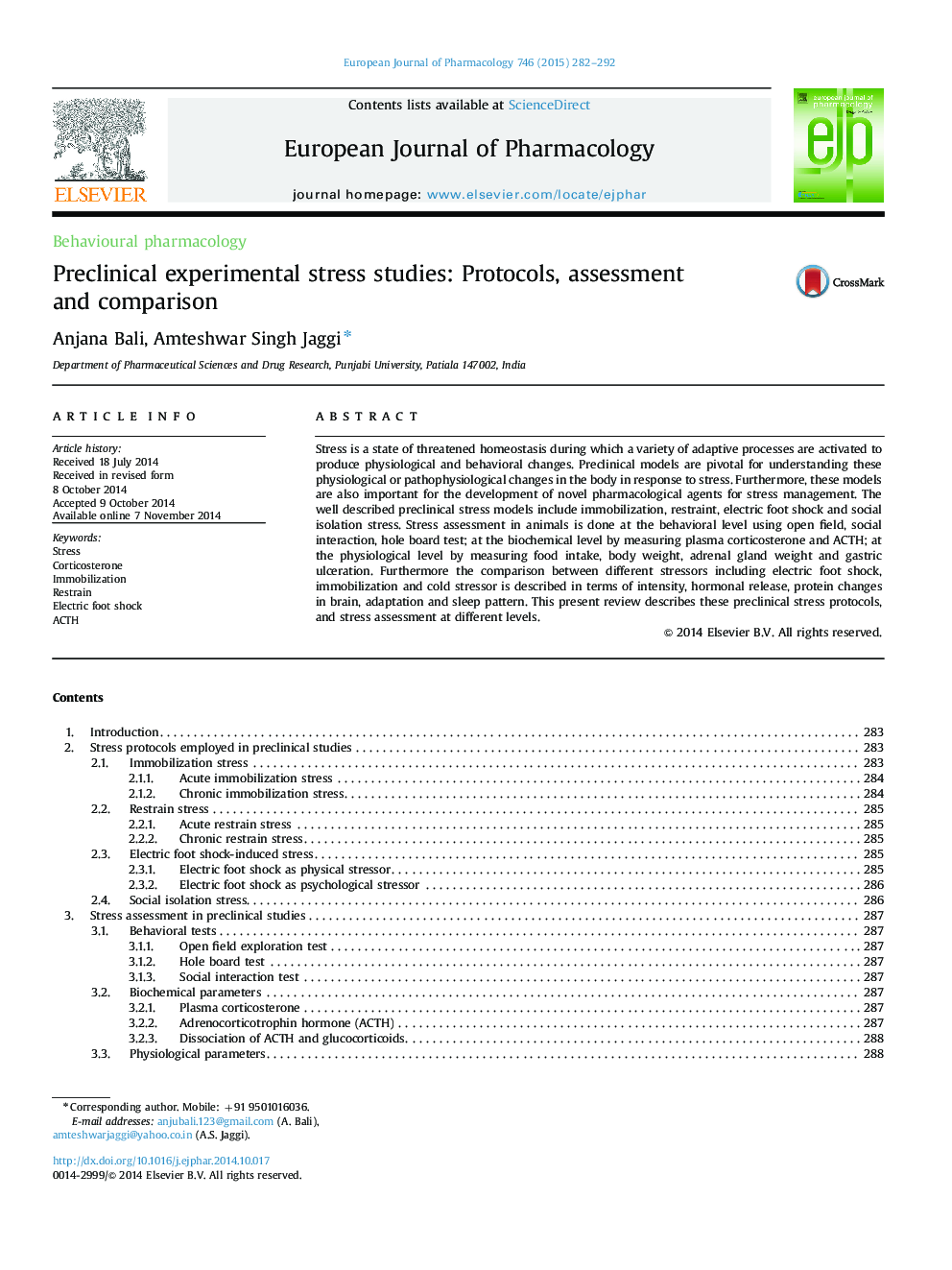| Article ID | Journal | Published Year | Pages | File Type |
|---|---|---|---|---|
| 2531569 | European Journal of Pharmacology | 2015 | 11 Pages |
Stress is a state of threatened homeostasis during which a variety of adaptive processes are activated to produce physiological and behavioral changes. Preclinical models are pivotal for understanding these physiological or pathophysiological changes in the body in response to stress. Furthermore, these models are also important for the development of novel pharmacological agents for stress management. The well described preclinical stress models include immobilization, restraint, electric foot shock and social isolation stress. Stress assessment in animals is done at the behavioral level using open field, social interaction, hole board test; at the biochemical level by measuring plasma corticosterone and ACTH; at the physiological level by measuring food intake, body weight, adrenal gland weight and gastric ulceration. Furthermore the comparison between different stressors including electric foot shock, immobilization and cold stressor is described in terms of intensity, hormonal release, protein changes in brain, adaptation and sleep pattern. This present review describes these preclinical stress protocols, and stress assessment at different levels.
